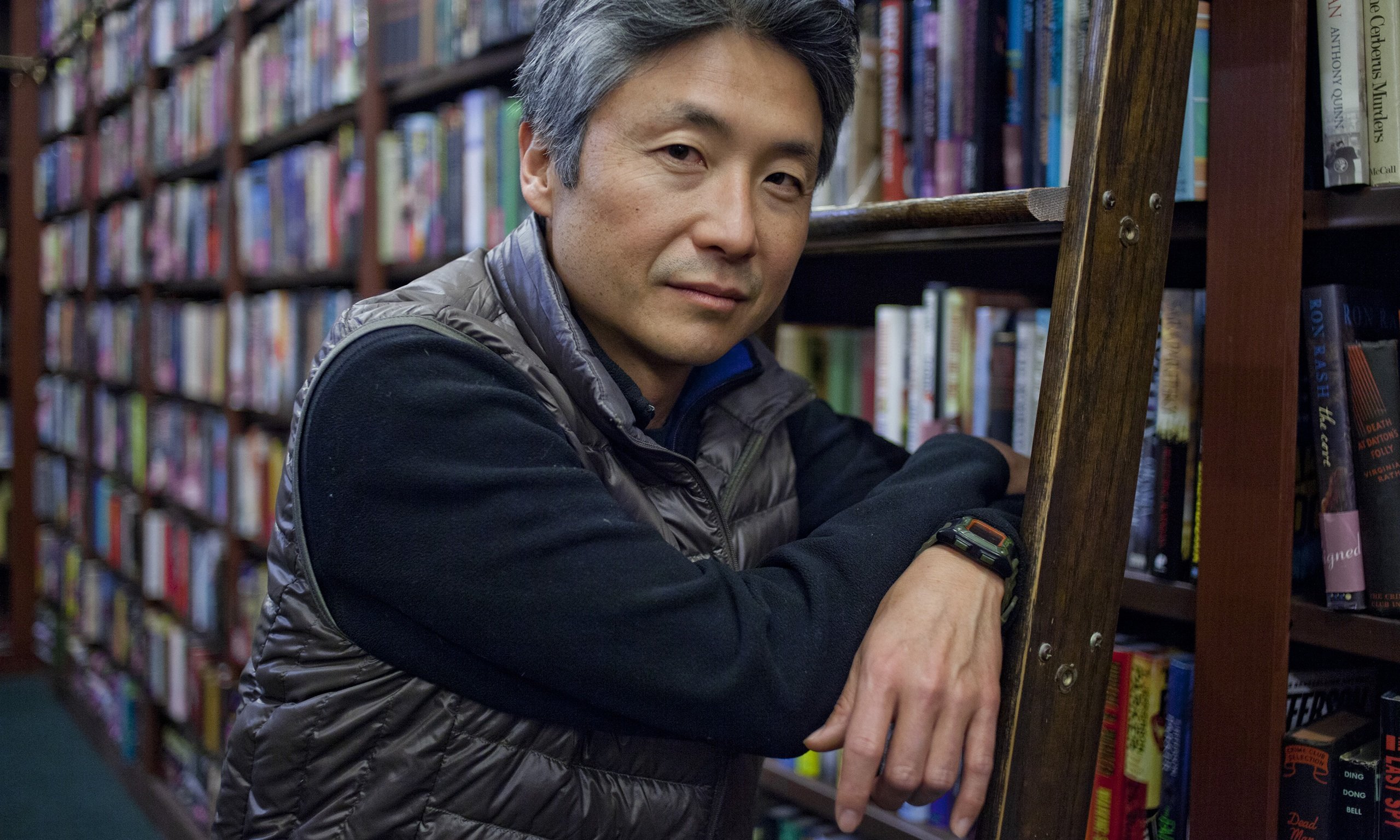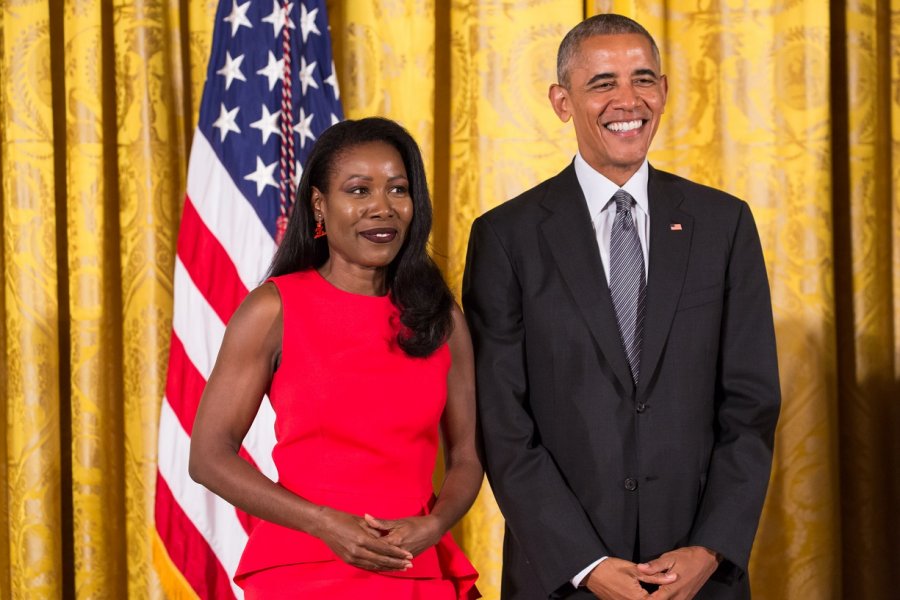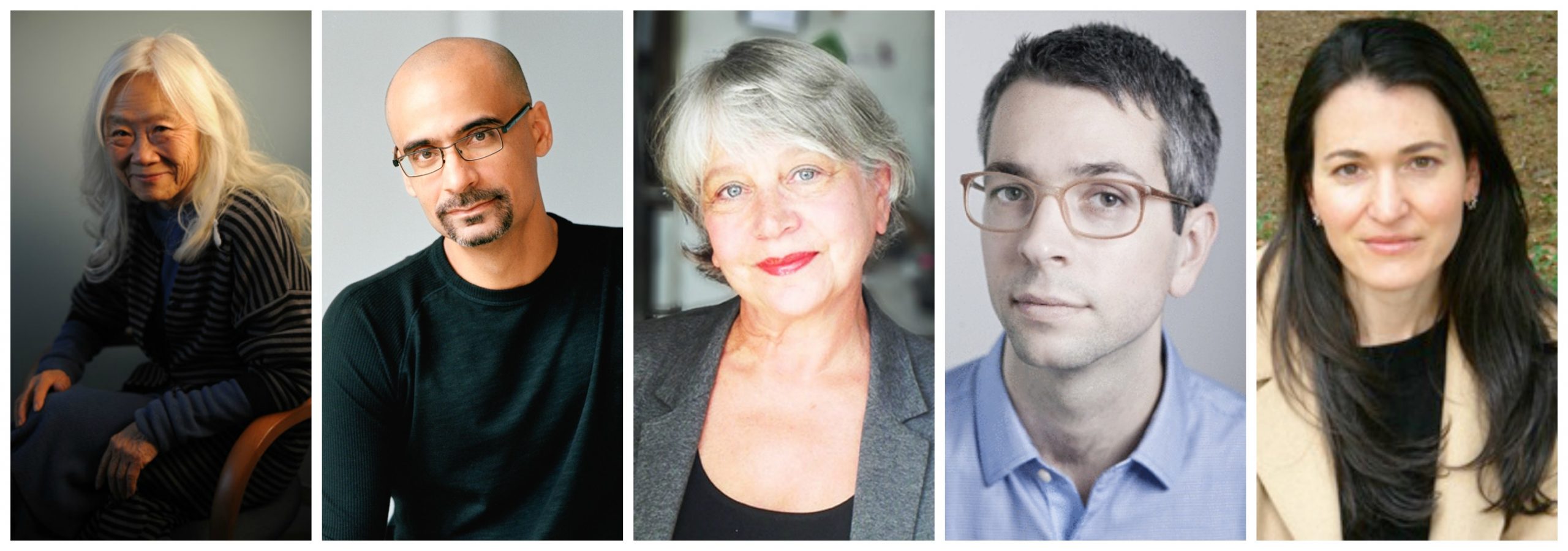Anisfield-Wolf SAGES Fellow Lisa Nielson had the honor of introducing Chang-Rae Lee to the packed audience at the 2015 Writers Center Stage series, sponsored by the Cuyahoga County Public Library and Case Western Reserve University. Her remarks, reprinted here, remind us why these conversations—about strong books and the authors that birth them—matter.
by Lisa Nielson
 Cleveland has a long history of celebrating literature and the arts. As many of you know, we are the home of the Anisfield-Wolf Book Awards, now about to celebrate her 80th year, which is one of the most important and inspiring book awards in the country. They were started by Cleveland philanthropist and poet Edith Anisfield Wolf in 1935 to honor books focused on what was then called “race relations.” Today, the list reflects an awe-inspiring array of thinking and scholarship on human diversity, including ground-breaking studies on slavery in the US, racism and genocide, neurodiversity and disability, immigrant experiences and global diasporas.
Cleveland has a long history of celebrating literature and the arts. As many of you know, we are the home of the Anisfield-Wolf Book Awards, now about to celebrate her 80th year, which is one of the most important and inspiring book awards in the country. They were started by Cleveland philanthropist and poet Edith Anisfield Wolf in 1935 to honor books focused on what was then called “race relations.” Today, the list reflects an awe-inspiring array of thinking and scholarship on human diversity, including ground-breaking studies on slavery in the US, racism and genocide, neurodiversity and disability, immigrant experiences and global diasporas.
Each September, I ride downtown with my students on the Healthline to attend the awards ceremony. Sharing the evening with them is one of the highpoints of my year. My students have a great time and are also unanimous that the food is excellent. I mention this because this year we have had the pleasure of having two past winners of the Anisfield-Wolf Book awards grace our campus: Zadie Smith last September and this evening, Dr. Chang-rae Lee.
Doing justice to Dr. Lee’s amazing career in a few minutes is impossible, so I’ll mention just some of his many accomplishments. He was born in Seoul, Korea, and moved with his family to the US as a young child. After receiving his BA in English from Yale, Dr. Lee found a job working as an equities analyst, but continued to write. He went on to earn an MFA in creative writing from the University of Oregon, where he was later hired as an assistant professor. He then ran and taught in the MFA program at Hunter College in NYC. Since 2002, Dr. Lee has been a Professor of Creative Writing at Princeton University. Dr. Lee has written five, highly-acclaimed novels, as well as short stories and articles for the New Yorker, New York Times, Granta, and many other prominent publications in the US and abroad.
His first novel, Native Speaker (1995) won the Hemingway Foundation/PEN Award for Best First Novel, the American Book Award, the Barnes & Noble Discover Award, and an ALA Notable Book of the Year Award. In 1999, the New Yorker listed him as one of the 20 best American writers under 40. His second novel, A Gesture Life (1999), won the Anisfield-Wolf Book Award for fiction in 2000, and The Surrendered (2010) was a finalist for the Pulitzer Prize in 2011. Dr. Lee’s most recent novel, On Such a Full Sea, published in 2014, was a finalist for the National Book Critic Circle Award for Fiction.
To me, reading his work is a full sensorial immersion. His writing is gorgeous, elegant, sensuous, and often funny. Dr. Lee’s novels address fundamental questions about the nature and composition of identity and cultural assimilation. Yet, his definitions of identity are not limited to ethnicity, gender, language, social class, or other academic categories, but how these aspects of our selves intersect with each other, the choices we make and our communities. He defies genre labels by writing in different vernaculars and slipping into the skins of men and women of all ages and backgrounds. Using the canvas of recent history, such as the Korean War, the abuses of comfort women by the Japanese during WWII, the experiences and assimilation of new Americans, Dr. Lee invites the reader into what Gloria Anzaldua called the borderlands; breaking us out of our hyphenated binaries and assumptions that identity is forever fixed.
In each novel, Lee places us – sometimes gently, sometimes not – on the path of a journey-in-progress. We are tossed into the deep end of life where we bump up against those swimmers we encounter as we move from one body of experience to the next. While on the way, we realize that although our complex human identities may include important components such as ethnicity, gender, or privilege, it is our relationship to others that gives meaning and definition to our ever-changing selves. This odyssey is perhaps most fully realized in Dr. Lee’s most recent novel, On Such a Full Sea, which is a futuristic imagining of the world following environmental disaster. In it, we follow the journey of Fan, who is part of a colony of workers originally transported from Asia to grow vegetables and fish in what is now called “B-Mor”, the former Baltimore, for the wealthy elites of the Charters. She is a skilled diver who immerses herself in the rough world as she seeks her lost lover, Reg, who has been stolen because he is C(ancer)-free. The fact of her journey causes her home community to rebel against the carefully padded limitations they have been surrounded by, and she fundamentally changes the people who encounter her.
Through Fan, Henry Park of Native Speaker, Doc Hata in A Gesture Life, Hector and June in The Surrendered, we are reminded that all of us swim together, immersed in the world; and that the ripples we cause as we move forward lap unavoidably against those of the people we encounter along the way. When we dive deep, we find we are all capable of changing and being changed.
Lisa Nielson is the Anisfield-Wolf SAGES Fellow at Case Western Reserve University. She has a PhD in historical musicology, with a specialization in Women’s Studies, and teaches seminars on the harem, slavery and courtesans.



